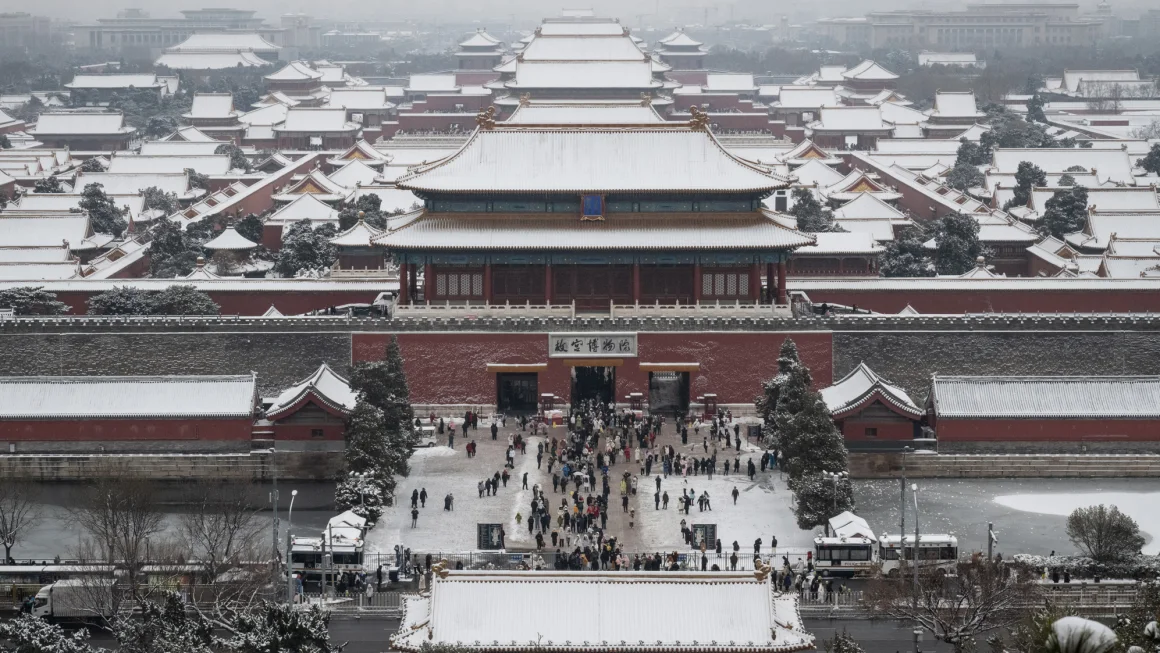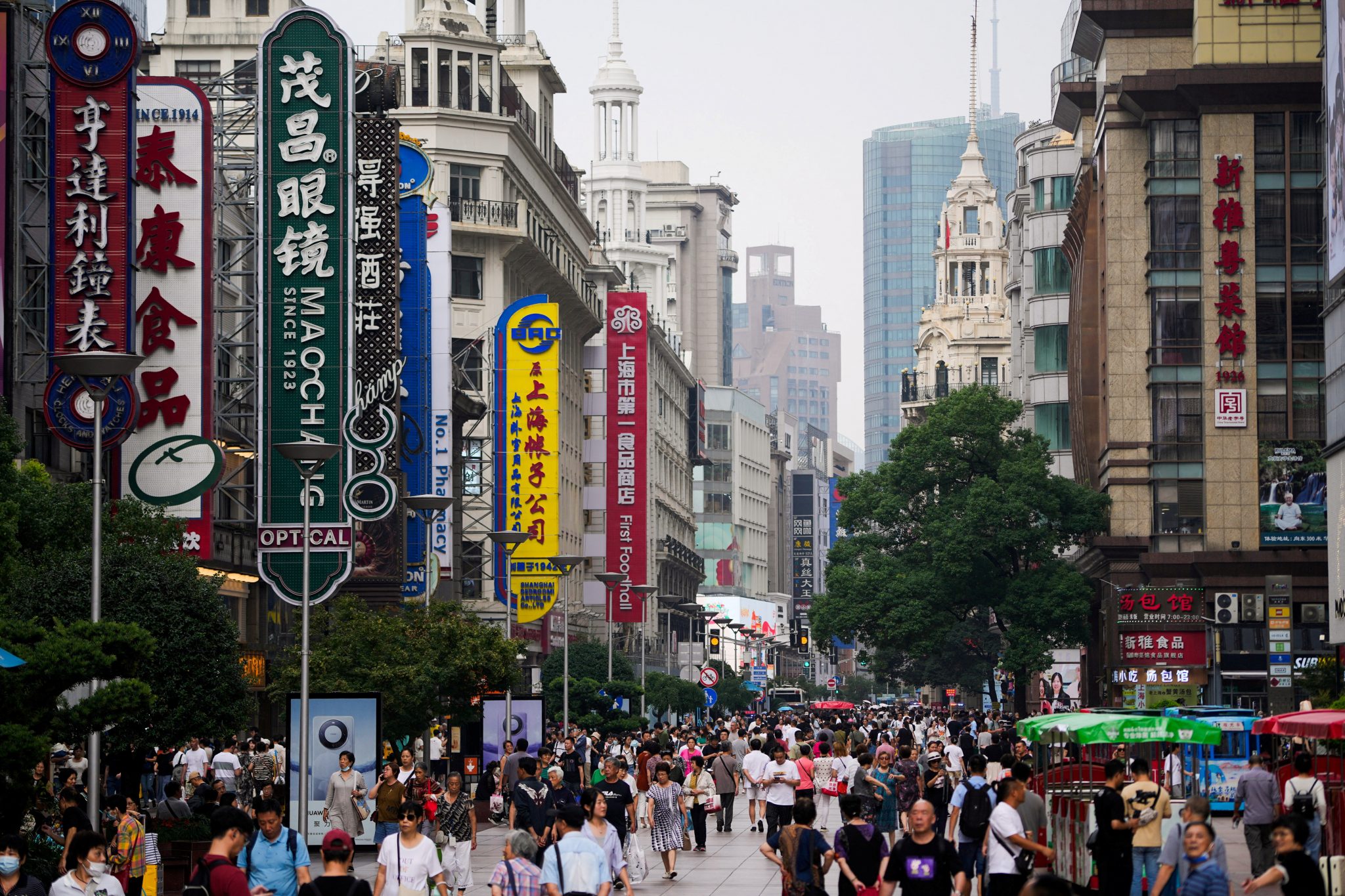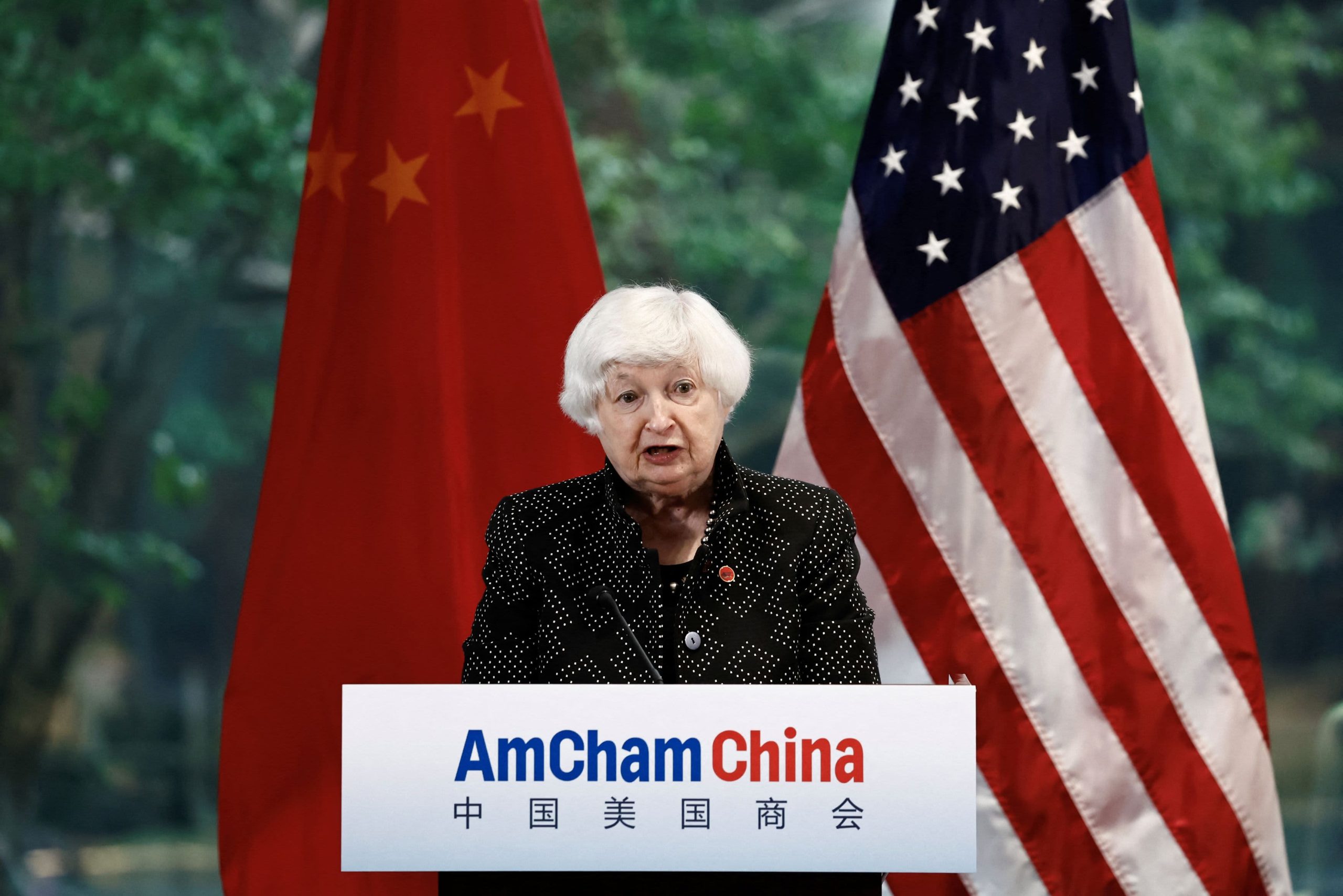U.S. Treasury Secretary Janet Yellen is currently undertaking a five-day visit to China, during which she expressed apprehension to Chinese officials on Friday regarding state subsidies that contribute to manufacturing overcapacity in sectors such as electric vehicles, solar panels, and semiconductors.
U.S. officials and economists have cautioned that China’s overcapacity—when its production significantly exceeds market demand—will further depress prices and lead to job losses, particularly if China opts to export surplus production rather than focusing on domestic consumption.

In a phone conversation with Chinese President Xi Jinping on Tuesday, U.S. President Joe Biden criticized China’s “unfair” trade policies and “non-market” practices, asserting that they detrimentally impact American workers and families.
China’s Foreign Ministry spokesperson Wang Wenbin provided insight into the trade discussion between the two leaders during a regular briefing on Wednesday, stating that
“the U.S. has implemented a series of measures to impede China’s trade and technology advancement and is expanding its sanctions against Chinese entities. This does not reduce risk but rather creates it.”

Gary Clyde Hufbauer, a senior fellow at the Peterson Institute for International Economics, explained that for capital-intensive industries like steel, oil refining, and semiconductors, capacity utilization below 75% over an extended period typically indicates excess capacity.
Hufbauer noted that China’s substantial government-driven investments have led to overcapacity in nearly all of its capital-intensive manufacturing sectors.
Additionally, China’s lithium-ion battery production exceeded domestic installation volume by 1.9 times in 2022, indicating burgeoning overcapacity in clean energy sectors.
China’s exports of electric vehicles, solar cells, and lithium batteries have also surged. In 2023, electric vehicle exports from China were seven times higher than in 2019, while solar cell exports increased fivefold from 2018, with a 40% rise from 2022.
The Rhodium Group’s report highlighted China’s emphasis on industrial policies favoring high-tech industries over household consumption, exacerbating the disparity between domestic supply and demand.

China previously faced overcapacity challenges from 2014 to 2016, following a massive stimulus package initiated in response to the 2008 global financial crisis.
The stimulus, focused on infrastructure and real estate construction, led to significant capacity expansion in various associated industries.
Derek Scissors, a senior fellow at the American Enterprise Institute, emphasized that China’s state-backed production in sectors like electric vehicles, solar panels, and batteries poses concerns for the Biden administration, which seeks to expand these sectors domestically.
The Rhodium Group’s report warned that China’s increased exports of new energy products could severely impact producers in advanced economies like the U.S., potentially leading to trade conflicts with the rest of the world.







Leave a Reply